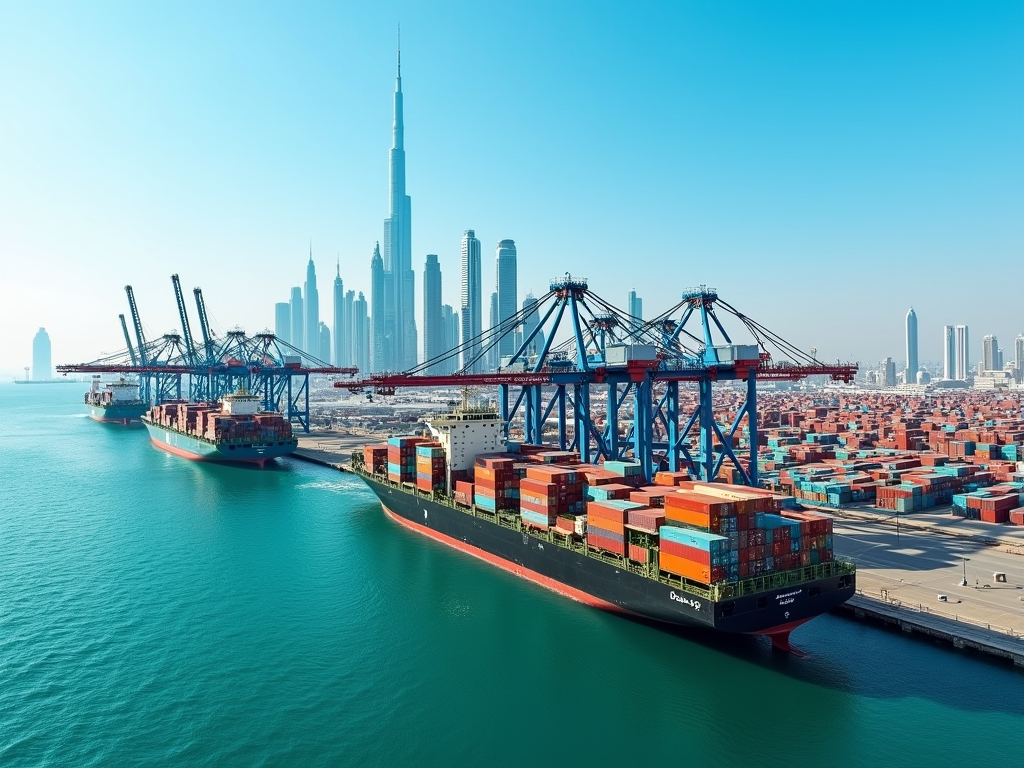Dubai, a major global trade hub, has established comprehensive import and export regulations to maintain economic control and ensure compliance with international standards. Understanding these regulations is crucial for businesses looking to engage in trade within the region. This article will delve into the key aspects of Dubai’s import and export procedures, necessary documentation, compliance measures, and the consequences of non-compliance. Grasping these elements can significantly facilitate your trade operations in this vibrant market.
Key Import Regulations in Dubai

Dubai’s import regulations are designed to safeguard public health, protect the environment, and ensure fair trade practices. As an importer, it’s essential to understand the requirements before bringing goods into the emirate. Below are the vital components of the import process:
- Customs Declaration: Importers must submit a customs declaration to the Dubai Customs Authority, detailing the nature and value of the goods.
- Prohibited and Restricted Items: Certain products are banned or subjected to restrictions. Familiarize yourself with these to avoid penalties.
- Tariffs and Duties: Import duties vary depending on the goods. Ensure you are aware of these costs to accurately calculate your expenses.
- Documentation: Key documents include the commercial invoice, bill of lading, and certificates of origin or conformity.
- Customs Broker: Engaging a licensed customs broker is advised to navigate the complexities of import regulations.
Export Regulations and Compliance

Exporting goods from Dubai requires adherence to specific regulations to ensure the safety and legality of trade. Entities intending to export must take the following steps into consideration:
- Registration: Ensure your business is properly registered and licensed to conduct export activities.
- Export Permits: Depending on the type of goods, you may need specific export permits that align with local regulations.
- Documentation: Essential documents include a commercial invoice, packing list, bill of lading, and relevant export licenses.
- Price Declaration: You may need to declare the value of goods being exported, which influences tax exemptions and charges.
- Compliance Checks: Be prepared for inspections and audits by local authorities to verify adherence to export regulations.
Dubai offers various benefits for businesses operating within its free trade zones, including duty exemptions that benefit exporters significantly. Here’s what you need to know:
- 100% Foreign Ownership: Companies in free zones can operate with complete foreign ownership without local sponsorship.
- No Import/Export Duties: Goods traded within free trade zones typically enjoy duty-free status, enhancing profitability.
- Streamlined Documentation: The paperwork process within free zones is usually more straightforward, reducing time and administrative burden.
- Attractive Trade Agreements: Companies can leverage Dubai’s favorable trade agreements to access broader markets.
- Relocation Benefits: Free zones often provide logistical support and infrastructure to facilitate easy relocate operations.
Consequences of Non-Compliance
Failing to comply with Dubai’s import and export regulations can result in serious repercussions that businesses must heed to avoid jeopardizing their operations:
- Fines and Penalties: Companies may incur hefty fines for violations, significantly impacting financial performance.
- Seizure of Goods: Non-compliant shipments can be confiscated, causing delays and financial loss.
- Legal Consequences: Persistent violations can lead to criminal charges, damaging company reputation.
- Revocation of Licenses: Repeated non-compliance might result in the loss of business licenses, ceasing operations.
- Increased Scrutiny: Companies with a history of non-compliance can face heightened scrutiny during future transactions.
Conclusion
Understanding Dubai’s import and export regulations is crucial for any business looking to thrive in this dynamic trade environment. By adhering to legal requirements, securing necessary documentation, and leveraging free trade zone benefits, enterprises can navigate regulatory waters effectively. On the other hand, non-compliance can lead to severe penalties that can disrupt operations and harm reputations. As a global trade hub, Dubai offers immense opportunities for businesses willing to align with its regulatory framework.
Frequently Asked Questions
1. What documentation is required for importing goods to Dubai?
Importing goods into Dubai typically requires a customs declaration, commercial invoice, bill of lading, and any necessary certificates of origin or conformity.
2. Are there any products prohibited for import into Dubai?
Yes, Dubai has a list of prohibited items, including drugs, firearms, counterfeit goods, and materials that may violate ethical standards.
3. How can I establish a business in a free trade zone in Dubai?
To establish a business in a free trade zone, you need to follow the registration process, secure the relevant licenses, and comply with specific regulations set by the free zone authority.
4. What are the consequences of failing to comply with export regulations?
Consequences can include fines, seizure of goods, legal action, and even revocation of business licenses for repeated violations.
5. Is it mandatory to hire a customs broker for import/export activities in Dubai?
While not mandatory, hiring a licensed customs broker is highly recommended as they can facilitate smoother navigation through complex regulations and ensure compliance.
